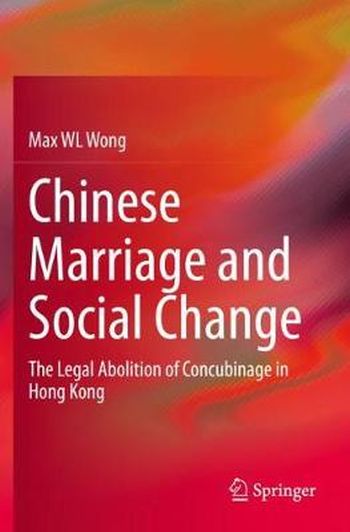
This book provides a comparative account of the abolition of concubinage in East Asia, offering a new perspective and revised analysis of the factors leading to - and the debates surrounding - the introduction of a new Marriage Reform Ordinance in Hong Kong in 1971. It uses this law as a platform to examine how the existence of concubinage - long preserved in the name of protecting Chinese traditions and customs - crucially influenced family law reforms, which were in response to a perceived need to create a 'modern' marriage system within Hong Kong's Chinese community after the Second World War. This was, by and large, the result of continued pressure from within Hong Kong and from Britain to bring Hong Kong's marriage system in line with international marriage treaties. It represented one of the last significant intrusions of colonial law into the private sphere of Hong Kong social life, eliminating Chinese customs which had been previously recognised by the colonial legal system's family law. This book contextualizes the Hong Kong situation by examining judicial cases interpreting Chinese customs and the Great Qing Code, offering a comprehensive understanding of the Hong Kong situation in relation to the status of concubines in Republican China and other East Asian jurisdictions. It will be of particular interest to teachers and students of law, as well as researchers in gender studies, post-colonialism, sociology and cultural studies.